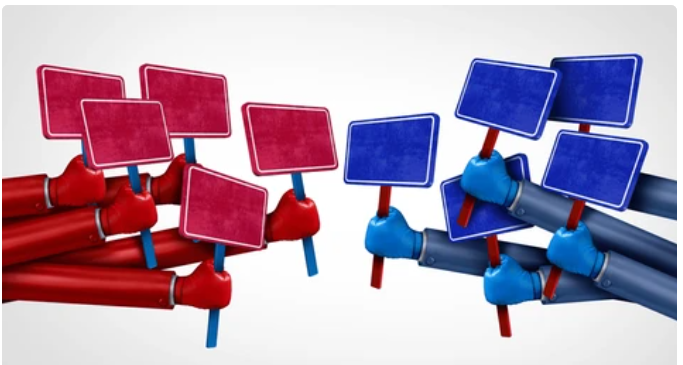Click on the link below for a podcast delving into a phenomenon that effectively lost the election for Kamala Harris:
Showing posts with label College. Show all posts
Showing posts with label College. Show all posts
Wednesday, November 6, 2024
Why The Political Split Based On A College Degree?
" - - - Over the past few decades, American society has experienced seismic changes. One of the trends we have seen is a rightward shift towards the Republican Party among voters without a four-year college degree and a pro-democratic center-left shift of voters who have a four-year college degree. There’s a lot to unpack about what has animated these changes. Matt Grossmann is the director of the Institute for Public Policy and Social Research and a professor of political science at Michigan State University. Dave Hopkins is a political scientist at Boston College. Grossmann and Hopkins are the co-authors of “Polarized by Degrees: How the Diploma Divide and the Culture War Transformed American Politics.” They join WITHpod to discuss the origin of these trends, the effects on both major parties, and more."
Saturday, May 4, 2024
Are College Campus Protests Effective?
The current college campus protests are bringing back reminders of when I was in college and the protests against the war in Vietnam were at their peak. As was the case then, there is much discussion about whether such activities help or hinder the resolution of the problem being addressed. Unfortunately, it's difficult to tell whether what happens after protests is a cause-effect or a correlation. Below are the results of some studies to shed some light on this controversial activity:
The impact of anti-Vietnam demonstrations upon national public opinion and military indicators"It seems to me these findings suggest two cautions about assessing vocal protest. The first is fairly obvious: One should be careful about assuming vocal agitators necessarily represent the masses they purport to speak for. Labor union leaders may not speak for workers, active feminists may not accurately represent women, and the Moral Majority may, as the bumper sticker suggests, be neither.
"Second, and perhaps more interestingly, it may be that the Vietnam protest movement, at least through 1968, actually was somewhat counter-productive in its efforts to influence public opinion--that is, the war might have been somewhat more unpopular had the protest not existed."
Sunday, June 3, 2018
Hazing: Why Is This Still A Story?
"I think that the universities and colleges of this country made a profound mistake in the middle of the last century, in the 1960s, when they decided that they were going to partner with fraternities and have offices of Greek life and have some kind of supervision over the fraternities. Fraternities were not created to be another nice club you could join like the chess club. They were created to be outlaw organizations, private clubs. And I think universities and colleges need to stop advertising them, promoting them, suggesting to parents that they have any ability to supervise their behavior. They have proven over and over again, in all of these events where we have dead young men, that they can't supervise them."
Hazing on college campuses, sports teams and fraternities, continues even with decades of publicity. Why? Hello? College should be places for critical thinking and learning, NOT for facilitating unthinking harmful "follow the crowd" attitudes and behaviors.
Deadly Hazing Continues On College Campuses
Research on the problem
Hazing on college campuses, sports teams and fraternities, continues even with decades of publicity. Why? Hello? College should be places for critical thinking and learning, NOT for facilitating unthinking harmful "follow the crowd" attitudes and behaviors.
Deadly Hazing Continues On College Campuses
Research on the problem
Subscribe to:
Comments (Atom)



